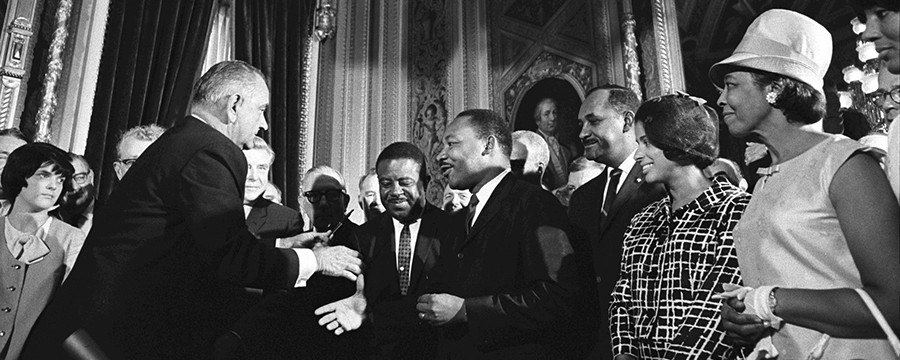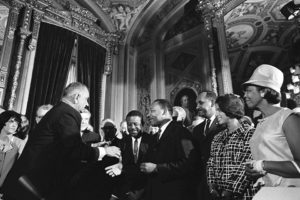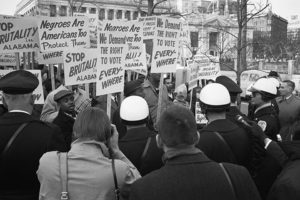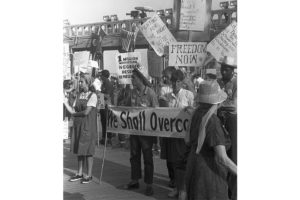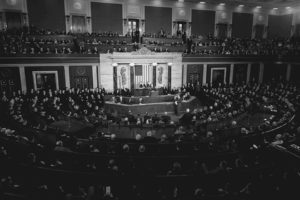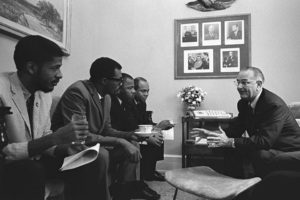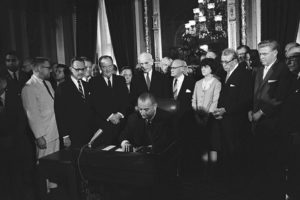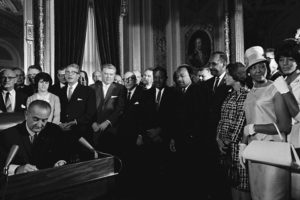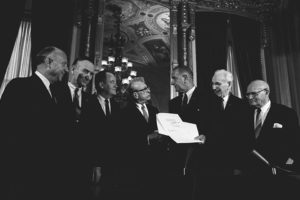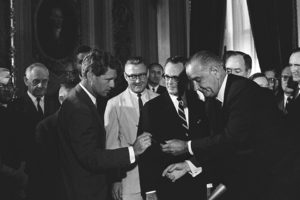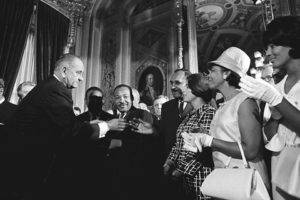Throughout the early half of the 20th century, vicious attacks on voting rights activists throughout the South pushed Congress to pass the 1965 Voting Rights Act, which aimed to finally fulfill the promise of the 15th Amendment ratified in 1870.
Black Americans faced “tremendous obstacles to voting, including poll taxes, literacy tests, and other bureaucratic restrictions to deny them the right to vote. They also risked harassment, intimidation, economic reprisals, and physical violence when they tried to register or vote. As a result, very few African Americans were registered voters, and they had very little, if any, political power, either locally or nationally,” according to the National Archives.
A year prior, writes the Washington Post, the Civil Rights Act of 1964, “set the precedent for breaking filibusters. Back then, a two-thirds vote of the Senate, or 67 votes, was needed to invoke “cloture” and end the filibuster that had lasted 75 days (60 working days), still the longest ever.”
Similar attempts to stymie the 1965 Act failed, and on August 6th, 1965, President Lyndon Johnson signed the Voting Rights Act into law, claiming, “The vote is the most powerful instrument ever devised by man for breaking down injustice.”

